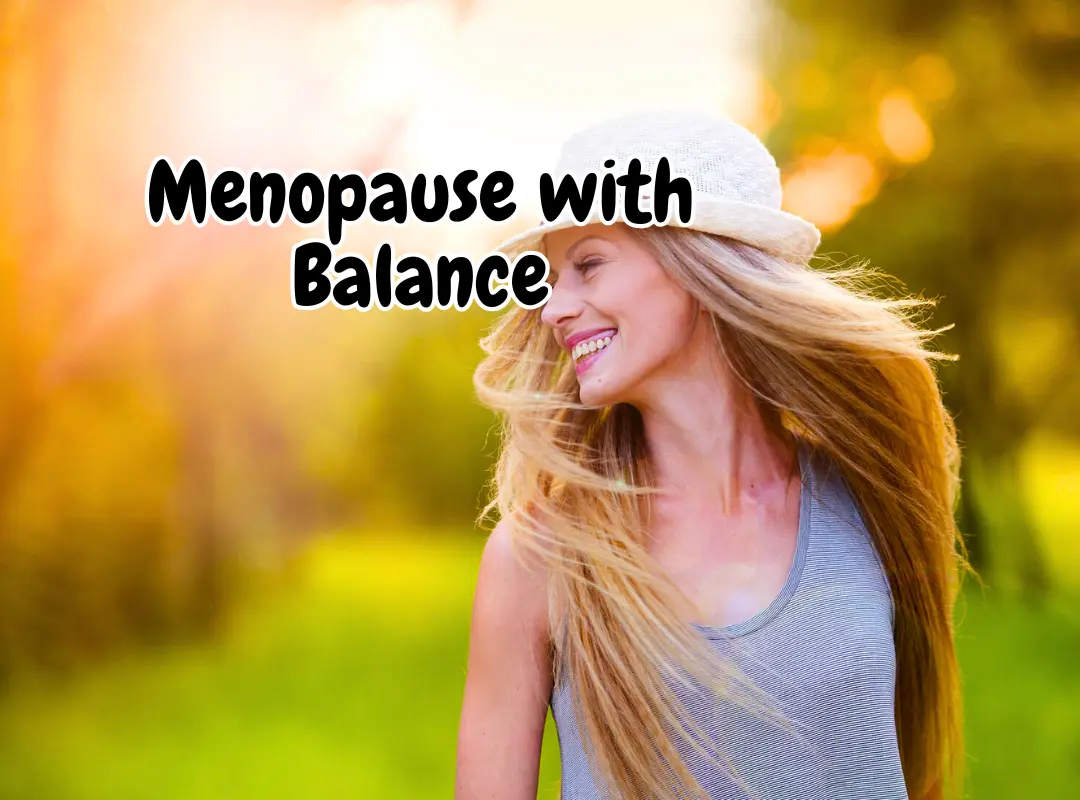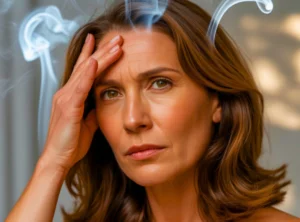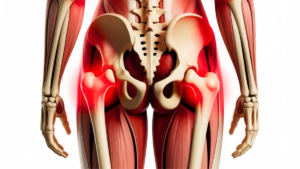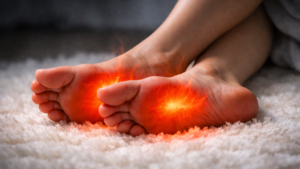The Reality of Menopause Hair Loss
Here we will explore the causes, treatments and solutions for menopause-related hair loss. Our goal is to provide a comprehensive understanding of this common problem.
Many women face hair loss during menopause, leading to feelings of distress and self-consciousness. Understanding the causes of hair loss is key as you go through this life change. It helps you know how it affects your hair.
Menopause brings many physical changes, including hair loss. For many women, this can be distressing and affect their self-esteem. Studies show over half of women experience hair thinning or loss during this time.
Hormonal fluctuations are a big factor in hair loss during menopause. The drop in estrogen and progesterone can make your hair thinner and shorter. You might see more hair falling out, mainly on your scalp’s top.
The Role of Estrogen in Hair Growth Cycles
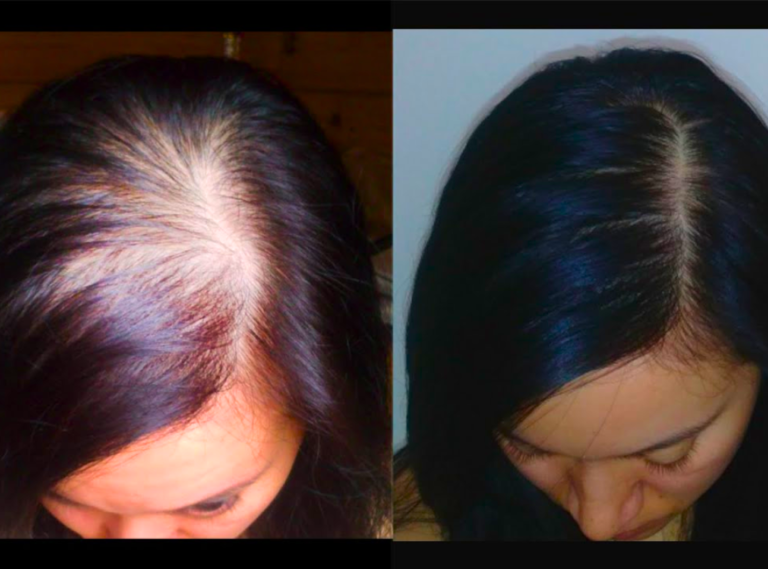
Why Menopause Causes Hair Loss
Estrogen is vital for hair growth cycles. It keeps your hair in the growth phase longer, making it thicker and healthier. But when estrogen levels fall during menopause, the growth cycle gets disrupted. This leads to hair loss.
Knowing how hormonal changes affect your hair is the first step to fighting menopause-related hair loss. With the right knowledge and strategies, you can keep your hair healthy and vibrant.
Lower estrogen and progesterone levels are key reasons for hair loss in menopause. Estrogen helps control hair growth. When it goes down, hair becomes thinner and shorter.
INCREASED SENSITIVITY TO ANDROGENS – Menopause also makes hair follicles more sensitive to androgens. Androgens can shrink hair follicles, making hair finer and shorter. This is worse when estrogen levels fall.
Other Contributing Factors
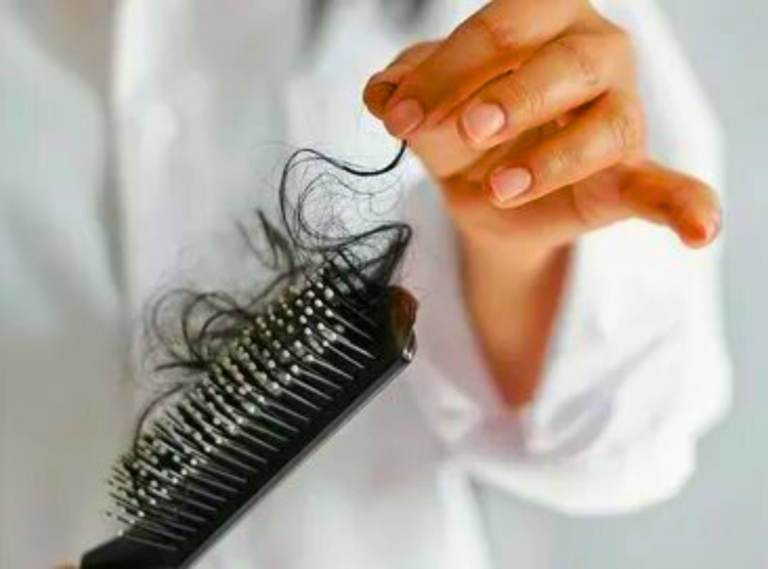
Being gentle with your hair is key during menopause. Use a wide-tooth comb or a soft-bristled brush to avoid breakage. Wash your hair less often and use lukewarm water instead of hot. Gentle handling of your hair can greatly reduce damage.
Stress and Anxiety
Stress, poor diet and anxiety can aggravate hair loss by interfering with the hair follicle’s growth cycle. Healthy stress management, such as exercise or meditation, can improve blood pressure levels.
Nutritional Deficiencies
A diet without key nutrients can also lead to hair loss. Getting enough vitamins and minerals, like iron and biotin, is important for healthy hair. Genetic Predisposition:
Genetics can also play a part in hair loss during menopause. If your family has a history of hair loss, you might be more likely to experience it too.
Knowing these reasons can help you start dealing with hair loss during menopause. By tackling the root causes, you can find ways to keep your hair healthy.
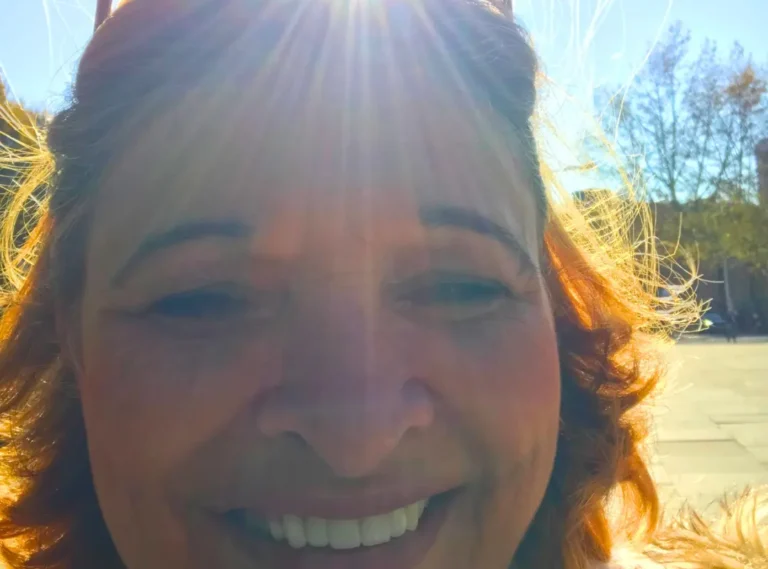
Recognizing Menopause-Related Hair Loss Patterns
Recognizing Menopause-Related Hair Loss Patterns
Menopause can cause hair loss, which is upsetting for many women. It’s important to know the signs of hair loss during menopause. This helps in getting help early and managing it well. Female pattern hair loss, with a wider part and thinning on the scalp, is common during this time.
Symptoms and Progression
Signs of female pattern hair loss include a wider part and thinning on the crown. There’s also a lot of hair shedding. These signs can change in different ways for each person. It’s vital to know the usual patterns and how hair loss progresses during menopause.
Understanding these signs helps doctors create better treatment plans. They can tailor treatments to meet the needs of women with menopause-related hair loss.
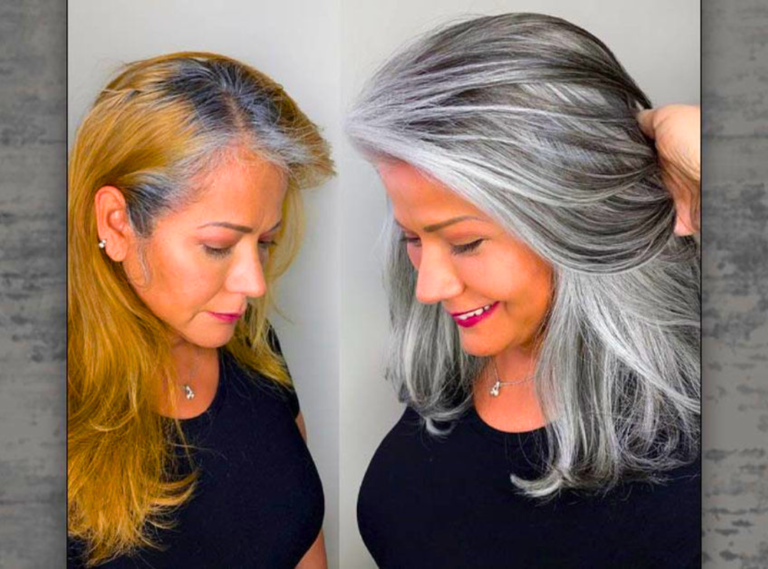
The Ideal Hair Dye for Women Over 45
Avoid harsh chemicals and excessive ammonia.
Choose dyes enriched with moisturizing agents, plant-based oils, and UV protection.
Opt for shades that enhance the radiance of mature skin — avoid overly dark or cool tones that may harden facial features.
Consider gentle coloring techniques like highlights, balayage, or lowlights to bring softness and dimension to the face.
How Hair Color Can Enhance Facial Beauty in This Stage
The right color can brighten the face and soften wrinkles and fine lines.
Creates contrast that enhances the eyes and draws attention to facial features.
Harmonizes with your skin tone, adding a sense of vitality and glow.
Natural Tips to Prevent Hair Damage
L
Use argan, coconut, or castor oil as finishing treatments.
Apply aloe vera (babosa) for strengthening and hydration.
Rinse with apple cider vinegar to balance pH and boost shine.
Avoid layering multiple chemical treatments, and always hydrate after coloring.
During menopause, women often face hair loss due to hormonal changes. While medical treatments are available, natural remedies and supplements are also key. Essential vitamins and minerals, like biotin, iron, zinc, and vitamins D and E, are crucial for hair growth.

Adding a balanced diet to your routine is important. Certain herbal supplements and essential oils can also help. For example, biotin-rich foods like eggs, nuts, and leafy greens support hair growth. Herbal supplements like saw palmetto and horsetail have been used traditionally to promote hair health.
Some natural remedies for hair loss include a balanced diet and herbal supplements. Stress-reducing activities, like meditation and yoga, are also helpful. Getting enough sleep and exercise is important too.
By using these natural remedies and supplements, women can actively work on keeping their hair healthy during menopause.
Diet Modifications for Healthier Hair
A balanced diet is key for healthy hair. Foods rich in omega-3s, zinc, and biotin help hair grow and reduce loss. Add salmon, walnuts, spinach, and eggs to your meals for better hair.
Stress Management Techniques
Too much stress can make hair loss worse. Try meditation, yoga, or deep breathing to lower stress. Regular exercise and enough sleep also help manage stress.
Exercise and Its Impact on Hormonal Balance
Exercise helps balance hormones during menopause. It can lessen menopause symptoms, including hair loss. Try to exercise for at least 30 minutes a day.
Sleep Quality and Hair Health
Good sleep is vital for hair health. Bad sleep can lead to more hair loss. Make sure to get enough sleep each night.
Caring for your hair during menopause is important. It helps keep your hair healthy and full of life. There are many ways to fight hair loss and make your hair stronger.
Conclusion: Taking Control of Your Hair Health
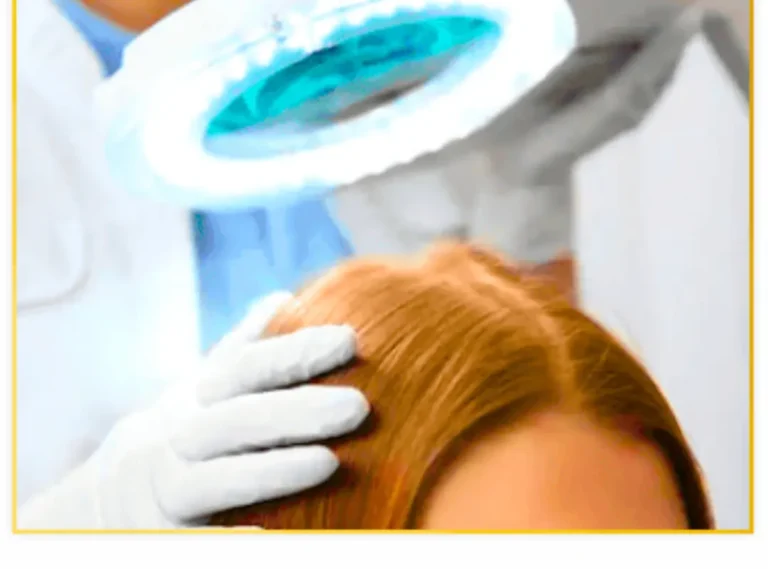
Menopause hair loss is a common issue for many women. Understanding its causes and exploring treatments can help. This includes medical options, natural remedies, and lifestyle changes.
It’s important for women to know how to manage their hair health. They should be aware of treatments like hormone therapy and topical treatments. Natural options like essential vitamins and minerals are also helpful.
FAQ
What is menopause hair loss?
Menopause hair loss is when you lose more hair than usual during menopause. This happens because of changes in hormones.
What causes hair loss during menopause?
Hair loss in menopause is mainly due to lower estrogen levels. It’s also because of increased sensitivity to androgens. Other reasons include stress, not getting enough nutrients, and genetics.
How can I recognize menopause-related hair loss?
You can spot menopause hair loss by looking for certain patterns. These include female pattern hair loss. You might also notice a lot of shedding, thinning, or balding.
What are the available treatments for menopause hair loss?
There are several treatments for menopause hair loss. These include hormone therapy, topical treatments like minoxidil, and oral medications. You can also try advanced procedures like microneedling and hair transplantation.
Are there any natural remedies for menopause hair loss?
Yes, there are natural ways to help your hair during menopause. These include taking essential vitamins and minerals, using herbal supplements, and applying essential oils.
Can lifestyle changes help combat hair thinning during menopause?
Absolutely, making lifestyle changes can help. Eating right, managing stress, exercising regularly, and getting enough sleep can all promote healthier hair.
How can I care for my hair during menopause?
To care for your hair during menopause, use gentle hair care methods. Choose the right hair products and avoid damaging styles. You can also try cosmetic solutions for thinning hair.
How does menopause hair loss affect emotional well-being?
Menopause hair loss can really affect how you feel about yourself. It’s important to address the emotional side of hair loss and find support.
What are some common myths about menopause hair loss?
Some myths say hair loss during menopause is inevitable or can’t be reversed. But, many treatments and lifestyle changes can help manage hair loss.
